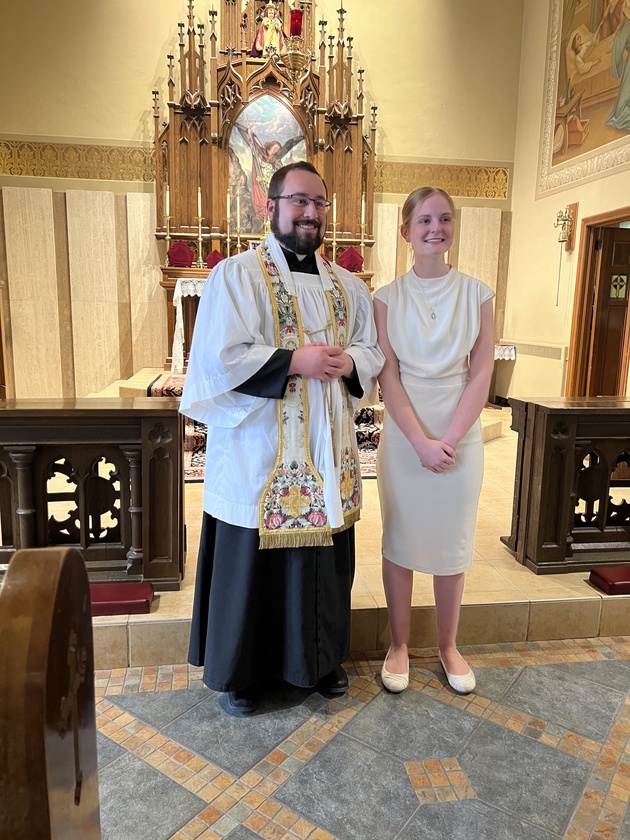Pop-Cultured Catholic #8: Using Jim Henson’s “The Dark Crystal” to Illustrate Authentic Chastity
Alright everyone. For this weekend, I would like to share a piece of commentary that has been on my mind for a long time now, one which could be considered a crossover between my “Pop-Cultured Catholic” series and my “Proposing New Ways to Help Understand Chastity” series. And it involves Jim Henson’s puppeteer fantasy film “The Dark Crystal”, along with its prequel series “The Dark Crystal: Age of Resistance”. How might one build an analogy for proper chastity, using the Skeksis and urRu Mystics from that franchise?
The backstory of “The Dark Crystal” involves these aliens called the urSkeks, who visited the fantasy world of Thra and magically split themselves into two kinds of beings, the urRu Mystics and the Skeksis. The urSkeks did this, using the planet’s titular Crystal of Truth, in an attempt to make themselves better by “purging” what they perceived to be their inner darkness. But that did not go according to plan.
Rather than cleansing themselves, all it did was split the urSkeks into the stoic, wise, spiritual, and peaceful urRu, along with the innovative, ambitious, sybaritic, and passionate Skeksis. The former became too sluggish, weak-willed, detached from the world, and long-term-focused to do much with their wisdom and prophecy. Meanwhile, the latter became corruptible and villainous due to their short-sightedness, impulsiveness, selfish hedonism, and inability to understand what would ultimately satisfy them. However, the Skeksis are framed as not necessarily evil by nature, and the plot’s resolution revolves around the main character successfully recombining them with their urRu counterparts back into urSkeks. It also somewhat reminds me of the moral in that Star Trek episode, “The Enemy Within”.
In the prequel series, “The Dark Crystal: Age of Resistance”, there is even a pair of characters who expand upon this theme, urGoh the Wanderer and skekGra the Heretic. They are a Mystic and Skeksis, who both received a prophetic vision that the key to their salvation was reuniting back into urSkeks, then sought each other out. While still unable to recombine, they choose to work cooperatively for their common goal, live together in amicable harmony, and become helpful allies for the main characters. One of my favorite scenes in the show involves urGoh and skekGra explaining their races' backstory, through a puppet show within a puppet show.
While pondering these applicability of these different characters' symbolisms, I thought about it could be applied to the virtue of chastity, which the Catechism of the Catholic defines as "the successful integration of sexuality within the person and thus the inner unity of man in his bodily and spiritual being". Paragraph #2337 continues: "Sexuality, in which man's belonging to the bodily and biological world is expressed, becomes personal and truly human when it is integrated into the relationship of one person to another, in the complete and lifelong mutual gift of a man and a woman. The virtue of chastity therefore involves the integrity of the person and the integrality of the gift."
With that in mind, here is how I believe each of the characters can be compared to how Christopher West has described different attitudes people may harbor towards Eros, especially the "addict", "stoic", or "aspiring mystic"...
1.) Most of the Skeksis = An Indulgent or Misguided Person Given Into Lustful Hedonism: Initially, the vulture-like Skeksis are respectable, albeit hedonistic characters who were treated as Thra's high-ranking aristocratic class. However, their continued misuse of the Crystal of Truth has caused them to suffer some afflictions and realize that they cannot exist as they are indefinitely. Unfortunately, they discover that they can use the crystal to drain the life "essence" out of Thra's native races, drinking which can give them a fleeting euphoric boost of energy and vitality. Very soon, the short-sighted Skeksis believe that harvesting the life force of Thra's people is the key to immortality and ultimate fulfillment, rather than merging themselves back into urSkeks. And so begins their quest to gradually harvest everyone around them to feed their own endless addiction to life essence. Likewise, one of the major harms of Lust involves the self-seeking treatment of other people as objects to sexually "consume". Plus, when people believe fulfillment lies in maximizing the superficial pleasure associated with sexuality, even at the expense of other people, rather than forging faithful, lifelong, loving, and potentially fruitful bonds with a spouse (or getting into Heaven as a chaste celibate), the Skeksis could arguably symbolize the folly of such mindsets.
2.) Most of the urRu Mystics = A Person Who Merely Represses or Jettisons One's Passions Altogether Due to a Misguided Understanding of Chastity: If I recall correctly, the way Christopher West elsewhere described a Puritanical “Sad Eros” reminded me of the urRu’s weakness, being relatively lifeless, dispassionate, and detached from the immediate goods/issues of the world. As stated earlier, the Mystics are rarely involved in the plot, aside from a select few instances. While they can provide important pieces of wisdom occasionally, their qualities make it hard for them to ever directly and properly engage in the conflict with their Skeksis counterparts, which is framed as a weakness on their part. A common piece of colloquial Christian wisdom is that a person doing God's will should first not be "of the world", as in being primarily influenced by the mentalities of a flawed world. But secondly, most Christians are still called to be engaged "in the world", for the created world is still good, our passions were created good by extension, and one must love and be in-tune with the world's activities to do God's will in it. While prayer and temperance is important, so too is taking action in service of God's will. Also, since one's sensual passions are one of those very things created to be good, a willingness to simply repress it or throw it away like the baby in the bathwater, rather than embrace it as a part of oneself, is a major handicap.
3.) The urGoh and skekGra Duo = Someone Striving to Achieve Authentic Chastity, By Seamlessly Integrating Their Physical Passions and Spiritual Aspirations: Seeing the interaction between urGoh the Wanderer and skekGra the Heretic reminds me of the greatest state of chastity a person could achieve, while still living on Earth under the Fall's effects. Sometimes, urGoh is sluggish and needs egging on from skekGra, while skekGra sometimes exhibits impatient outbursts as a product of his residual Skeksis' weaknesses. However, they realize that they both ultimately want the same goal and try to cooperate as best they can, in order to help the protagonists on their quest. Likewise, even the holiest of saints were still sinners and had to deal with their own spiritual shortcomings and passion-related disorders. Yet one can still strive to do God's will utilizing both sets of desires. And as I alluded to before, if one's understanding of the sexual appetite is to define it as something like "the yearning to initiate and continuously nourish a lifelong and potentially fruitful bond with a mate/spouse, through acts of sexual intercourse", then one might realize that his spiritual goal to follow God's plan for marriage/sexuality and his bodily passions are both ultimately fulfilled by the same things. Sometimes, resisting sexual sins like fornication, pornography, etc. is not about trying to defeat one's bodily desires/passions, but rather properly understanding one's desires enough so that both can be in agreement and cooperate. Finally, just as a prophetic vision brought urGoh and skekGra together, Christopher West uses the image of someone offering their erotic desires up as a prayer, in order for it to be properly ordered.
4.) The Recombined urSkeks = The State of Humanity, After It is All Resurrected in Glorified Bodies: Finally, once humanity is fully redeemed and everything is put back into alignment in a resurrected glorified body, that inner alignment could be represented by the recombined urSkeks at the end of the original Dark Crystal film. Coincidentally, in the religious video I am linking, Christopher West likens chastity to properly orienting one's "rocket engines", so that their "fuel" may allow them to reach the stars rather than crashing. And flying off into the stars is the last thing we see the urSkeks doing, after they are recombined. One other thing I would like to share is a piece of fan art, reimagining a more straightforward way the urSkeks could have looked, which blends the appearances of the urRu and Skeksis into one being. I imagine that piece of fan art I attach would much better represent a resurrected humanity, after God restores a new Heaven and new Earth.
Besides the attached pictures, I will be linking some clips from the prequel series, the original movie, and a video by Christopher West...
1.) "First Essence Drain | The Dark Crystal: Age of Resistance"
https://www.youtube.com/watch?v=7FnezLs_1ng
2.) "Heretic and UrGoh (Circle of the Suns) | The Dark Crystal: Age of Resistance"
https://www.youtube.com/watch?v=RkOuUg5Qw2E
3.) "The Puppet Show Within A Puppet Show Scene | The Dark Crystal: Age Of Resistance"
https://www.youtube.com/watch?v=DbOmuBj7COU
4.) "The Dark Crystal: The Prophecy Is Fulfilled"
https://www.youtube.com/watch?v=DobSmOHMBe8
5.) "How to Turn Your 'Sexual Needs' into a Prayer | Three Choices with Eros | THEOLOGY OF THE BODY"
https://www.youtube.com/watch?v=oMyK0A2hDUs





























